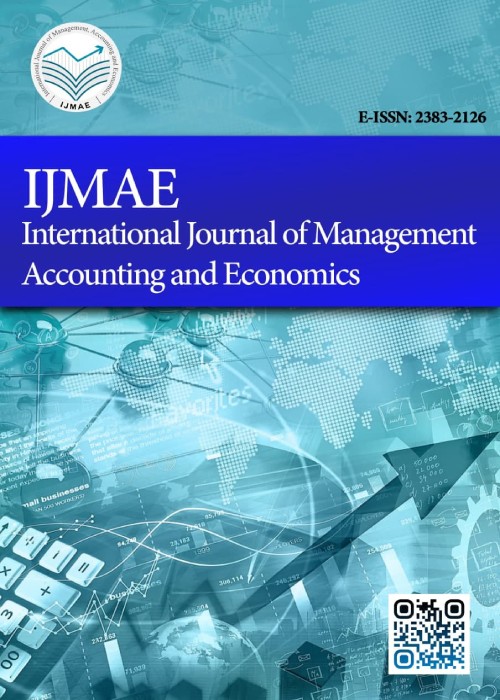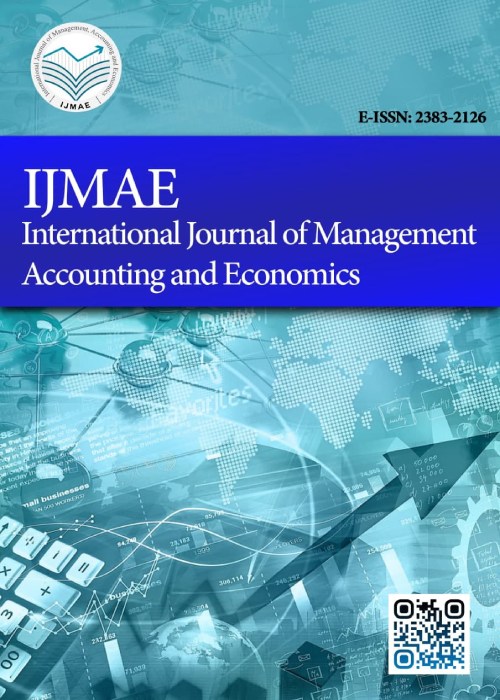فهرست مطالب

International Journal of Management, Accounting and Economics
Volume:11 Issue: 1, Jan 2024
- تاریخ انتشار: 1402/12/14
- تعداد عناوین: 6
-
Pages 1-18In the intricate and dynamic landscape of the Crude Oil Products Industry, it is imperative for companies to comprehend customer needs and desires thoroughly. This understanding enables proactive responses to customer needs, fostering enduring, mutually beneficial business relationships, and leveraging customer dissatisfaction as opportunities for service recovery and retention. This study aimed to develop a B2B customer complaint management model for Iraq’s crude oil products industry, employing a mixed-exploratory research method. The qualitative phase encompassed documentary analysis and theme analysis, revealing several critical components as influential factors in the customer complaint management model through literature review and in-depth interviews. The quantitative phase utilized Interpretive Structural Modeling (ISM) to identify and evaluate these key components. The ISM analysis provided valuable insights into the hierarchical relationships and influences of these factors, identifying timely product delivery and effective customer interaction as the most influential factors at the highest level.Keywords: Crude Oil Products, Customer Complaint, Customer Complaint Management, Iraq
-
Pages 19-37This study provides a proposed digital platform for accounting disclosure of corporate social responsibility (CSR) performance. The purpose of this digital platform is to help companies disclose their sustainability performance in accordance with international standards by providing a platform for activities in the field of corporate social responsibility. Digital platforms provide mechanisms for measuring and disclosing corporate social responsibility and sustainability. This study provides new information and new measures of his CSR performance in three main dimensions: economic, social and environmental value creation. This study develops a digital platform to measure and disclose CSR performance in applied research in the Egyptian healthcare industry.The results of this study demonstrate that using digital platforms as measurement and disclosure systems is worthwhile and valuable. The results of the applied study demonstrate the effectiveness of the system in measuring strategic sustainability performance dimensions. This research provides a wealth of information for all users of financial reports and addresses stakeholder needs for more information on the measurement and disclosure of corporate social responsibility performance. This research has practical implications for companies using this system as a measurement tool to measure strategic sustainability performance. This research has implications not only for the concept of strategic sustainable performance of companies, but also for the concept of corporate social responsibility.Keywords: corporate social responsibility (CSR), digital transformation, Governance, Strategic Sustainability Platform System (SSPS), Sustainability accounting, Egypt
-
Pages 38-61This research aims to investigate whether smartphone brands have gender from the perspective of Iranian users and examine the relationship between different genders of smartphones and brand equity with mediating role of customer loyalty. This is a quantitative study that uses inferential statistics to evaluate hypotheses. A standardized questionnaire with 26 questions was used as the research instrument. The statistical population consisted of users of the six most widely-used smartphone brands in Iran (Samsung, Apple, Xiaomi, Huawei, Sony and Nokia), who could participate in the online survey through social networks (Instagram, WhatsApp, and Telegram). The simple random probability sampling method involved 472 samples. Smart PLS version 3 and SPSS version 26 were used to analyze the data. The research was carried out from June 2022 to February 2023. The results show that smartphones have gender from the perspective of Iranian users. Brand femininity and masculinity correlate significantly and positively with customer loyalty to smartphones. Customer loyalty has a significant and positive relationship with brand equity in smartphones. Both brand femininity and masculinity increase brand equity through customer loyalty, with brand femininity having a more significant impact on brand equity than brand masculinity. The biological gender of smartphone users has no relationship with customer loyalty and does not affect their perception of brand femininity and masculinity.Keywords: Brand Gender, customer loyalty, brand equity, smartphone, Marketing strategy
-
Pages 62-74Multinational Enterprises (MNEs) are companies that operate in multiple countries, and their performance is critical to the global economy. This study explores the relationship between leadership communication and organizational performance in Business Development Organisation (BDO) East African multinational enterprises, employing a mixed-methods research design. The quantitative phase, utilizing a structured survey, reveals a consensus among respondents (67.6% strongly agree, 32.4% agree) that well-established leadership communication helps in articulating an organization's vision and goals and 78.7% agree that effective leaders’ communication builds support for workers' strategic initiatives. Both the quantitative and qualitative findings underscore the significance of leadership communication in promoting a collaborative organizational culture that improves performance. The research recommendations include business training centres should focus on targeted leadership training that fosters open communication, and continuous refinement of communication strategies.Keywords: leadership, multinational, performance, Tanzania
-
Influence of Online Banking on Bank Performance in Nepal: Mediating Role of Training and DevelopmentPages 75-95Since the internet became freely accessible everywhere in recent years. As banking transactions changed and shifted to online banking, banks paid more attention to how to make the best use of it, reduce operating expenses, and boost profitability. Online banking is a method of doing business that has frameworks that are properly connected with various customer-oriented services offered while also lowering costs and raising profits. The current study sought to investigate the impact of internet banking on Nepali banks' performance in terms of the mediating effect of training and development. It focuses mostly on how training and development affect bank performance in Nepal. Additionally, it emphasizes how crucial online banking can be for improving bank financial performance.The data were selected from 150 respondents of commercial banks located at Khathmandu, Bhaktapur, and Lalitpur. As the primary source of quantitative data for the present research, participants completed a self-administered questionnaire. Additionally, partial least squares structural equation modeling (PLS-SEM) was used to examine the data obtained through the use of questionnaires. The findings suggest a favorable association between online banking and bank performance. According to the findings, training and development significantly impact bank performance. The findings also indicate that the association between online banking and bank performance is mediated by training and development. To meet the intended profitability ratio from online banking, increase customer satisfaction, and produce strong financial performance, management should work to put focus on the training and development process.Keywords: Bank Performance, Commercial Banks, Internet Banking, Online Banking, Training, development
-
Pages 96-110Accounting information plays a crucial role in the decision-making process of lenders. They pay special attention to the income statement and its quality when making decisions. Consequently, financial statements must meet the minimum required standards. Adopting a comprehensive risk management approach can enhance earnings quality, ensuring effective reporting and compliance with laws and regulations. Therefore, this study aims to examine the impact of external financing and the moderating role of risk management on earnings quality. The research hypotheses were analyzed and tested using a multivariate regression model with panel data. The study's statistical population consists of firms listed on the Tehran Stock Exchange. The findings demonstrate a positive and significant relationship between a firm's external financing and earnings quality. This suggests that risk management plays a moderating role in the relationship between external financing activity and earnings quality. External financing and risk management contribute to improving the quality of financial information. Investors can evaluate the reliability of a firm's accounting data based on the level of external financing and enterprise risk management components. Thus, these findings have implications for managers and regulators to enhance the quality of financial information and promote the use of a comprehensive risk management approach to build creditor trust.Keywords: Earnings Quality, Enterprise risk Management, Financing


